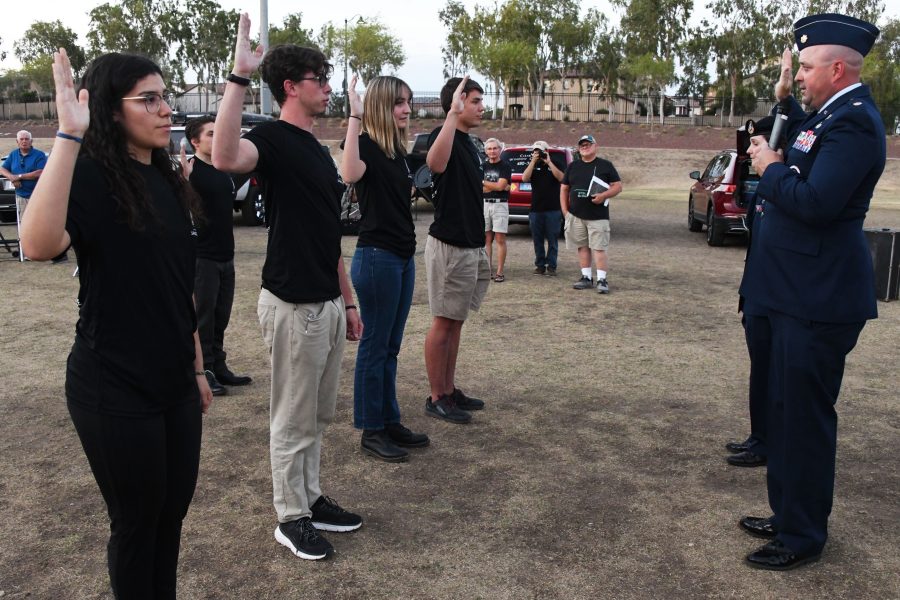The Space Force isn’t quite ready to take full responsibility for recruiting its own Guardians yet, but the service is preparing a detachment within the Air Force Recruiting Service to build a strategy for doing so, Chief Master Sergeant of the Space Force John F. Bentivegna said this week.
Right now, AFRS is responsible for recruiting for both services, and almost all of its recruiters are Airmen. While there are some Space Force-focused recruiters, they are few and far between, leaving many prospective Guardians to work with recruiters who are not exactly space experts.
“As it stands right now, we just have Air Force recruiters turned Space Force recruiters that have no information beyond just the enlistment process,” an Air Force recruiter told Bentivegna during a question-and-answer session at the Air Force Sergeants Association convention in Houston. The recruiter asked if the service was looking to develop its own recruiting cadre.
“Recruitment is service business,” Bentivegna said, distinguishing it from support functions provided by the Air Force, such as security forces and public affairs, to ensure the young service stays lean and mission-focused. “But we were not ready to start doing that ourselves. So we asked our teammates in the Air Force to start doing that.”
The Space Force relies on training classes to give recruiters a crash course in space, so they can better answer recruits’ questions. That will change eventually, Bentivegna said. But the Space Force is standing up a detachment to start crafting a recruiting strategy.
“We’re actually hoping to stand up our first recruiting, excuse me, scouting detachment and stand up a talent Guardian scouting squadron within the Air Force Recruiting Service, probably in [2025],” Bentivegna said. “There’s already been a lieutenant colonel identified as the first commander. We had a special duty board where we selected the first tranche of talent scouts, Guardian scouts. … We haven’t settled on a phrase yet.”
The scouting detachment aims to learn best practices from industry and other services.
“How do the Marines recruit? How does the Special Operations community recruit?” he said. “…Their job is going to be, what are the best practices between the services and industry? What can we learn from academia? And then start to define, what is the strategy for the Space Force going forward?”
In the meantime, it will be “at least another year or so” of the current setup, where Airmen recruit new Guardians, the CMSSF said.
That approach has worked well thus far—the Space Force has hit its recruiting goals and is on pace to do so again this year, with plenty of public interest in the young, high-tech service.
But there are service-specific differences and quirks, and Bentivegna made clear that the USSF wants to develop its own recruiters who understand the service and space as a whole.
“We’re putting skin in the game. We’re investing and trying to figure out strategies,” he said.
The Space Force has already worked on developing its own curriculum for Basic Military Training and has sent Guardians to attend instructor schools with the Air Force and Army.

